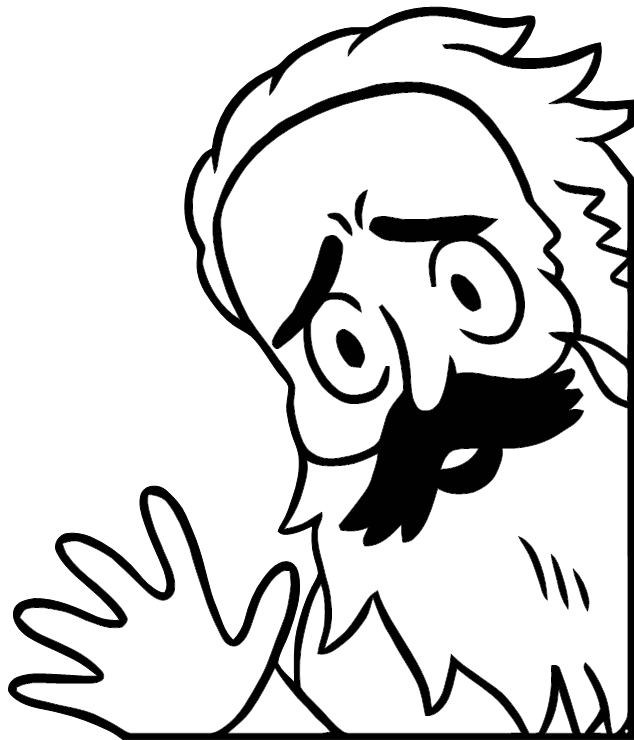One year on. Hundreds of thousands are dying or dead, millions are displaced, the Middle East is undergoing its greatest changes in a generation, Iran has directly attacked Israel twice in one year, and Yemen has proven that the US Navy ain't worth shit. We are the closest we have been to nuclear war (discounting accidents) in decades, but also the fall of Israel.
Because one day, the prisoners of a concentration camp paraglided over a wall.
Please check out the HexAtlas!
The bulletins site is here!
The RSS feed is here.
Last week's thread is here.
Israel-Palestine Conflict
Sources on the fighting in Palestine against Israel. In general, CW for footage of battles, explosions, dead people, and so on:
UNRWA reports on Israel's destruction and siege of Gaza and the West Bank.
English-language Palestinian Marxist-Leninist twitter account. Alt here.
English-language twitter account that collates news.
Arab-language twitter account with videos and images of fighting.
English-language (with some Arab retweets) Twitter account based in Lebanon. - Telegram is @IbnRiad.
English-language Palestinian Twitter account which reports on news from the Resistance Axis. - Telegram is @EyesOnSouth.
English-language Twitter account in the same group as the previous two. - Telegram here.
English-language PalestineResist telegram channel.
More telegram channels here for those interested.
Russia-Ukraine Conflict
Examples of Ukrainian Nazis and fascists
Examples of racism/euro-centrism during the Russia-Ukraine conflict
Sources:
Defense Politics Asia's youtube channel and their map. Their youtube channel has substantially diminished in quality but the map is still useful.
Moon of Alabama, which tends to have interesting analysis. Avoid the comment section.
Understanding War and the Saker: reactionary sources that have occasional insights on the war.
Alexander Mercouris, who does daily videos on the conflict. While he is a reactionary and surrounds himself with likeminded people, his daily update videos are relatively brainworm-free and good if you don't want to follow Russian telegram channels to get news. He also co-hosts The Duran, which is more explicitly conservative, racist, sexist, transphobic, anti-communist, etc when guests are invited on, but is just about tolerable when it's just the two of them if you want a little more analysis.
Simplicius, who publishes on Substack. Like others, his political analysis should be soundly ignored, but his knowledge of weaponry and military strategy is generally quite good.
On the ground: Patrick Lancaster, an independent and very good journalist reporting in the warzone on the separatists' side.
Unedited videos of Russian/Ukrainian press conferences and speeches.
Pro-Russian Telegram Channels:
Again, CW for anti-LGBT and racist, sexist, etc speech, as well as combat footage.
https://t.me/aleksandr_skif ~ DPR's former Defense Minister and Colonel in the DPR's forces. Russian language.
https://t.me/Slavyangrad ~ A few different pro-Russian people gather frequent content for this channel (~100 posts per day), some socialist, but all socially reactionary. If you can only tolerate using one Russian telegram channel, I would recommend this one.
https://t.me/s/levigodman ~ Does daily update posts.
https://t.me/patricklancasternewstoday ~ Patrick Lancaster's telegram channel.
https://t.me/gonzowarr ~ A big Russian commentator.
https://t.me/rybar ~ One of, if not the, biggest Russian telegram channels focussing on the war out there. Actually quite balanced, maybe even pessimistic about Russia. Produces interesting and useful maps.
https://t.me/epoddubny ~ Russian language.
https://t.me/boris_rozhin ~ Russian language.
https://t.me/mod_russia_en ~ Russian Ministry of Defense. Does daily, if rather bland updates on the number of Ukrainians killed, etc. The figures appear to be approximately accurate; if you want, reduce all numbers by 25% as a 'propaganda tax', if you don't believe them. Does not cover everything, for obvious reasons, and virtually never details Russian losses.
https://t.me/UkraineHumanRightsAbuses ~ Pro-Russian, documents abuses that Ukraine commits.
Pro-Ukraine Telegram Channels:
Almost every Western media outlet.
https://discord.gg/projectowl ~ Pro-Ukrainian OSINT Discord.
https://t.me/ice_inii ~ Alleged Ukrainian account with a rather cynical take on the entire thing.


Mondoweiss: ‘A time of painful birth and major transformation’: a senior Hamas leader reflects on October 7 and its aftermath
An interview with senior Hamas leader Mousa Abu Marzouk. Some selected quotes and commentary:
I think this speaks to the fact that KSA and Israel were closing in on a deal for official recognition. But it’s deeper than just diplomatic ties. Israel wants to be “integrated” (I think more like, “in charge”) in with neighbors like KSA, Jordan and Egypt. Diplomatic, military, and economic integration - again, I don’t think Israel has equality in mind, though. That would have been horrible for the Palestinians, and that project is now dead in the water and likely will be for some time.
Yes I get that a senior Hamas leader will probably say this regardless but it’s still nice to hear, and I also happen to think this jives with the reality on the ground.
This is very dialectical.
The Resistance frequently harkens back to Aaron Bushnell, I think he would be proud to know what his sacrifice meant to them.
Rest in Power
VI Lenin: “Left-Wing” Communism: an Infantile Disorder
Ch.03: The Principal Stages in the History of Bolshevism
Continued
VI Lenin: “Left-Wing” Communism: an Infantile Disorder
Ch.03: The Principal Stages in the History of Bolshevism
If the heroes of the Second International have all gone bankrupt and have disgraced themselves over the question of the significance and role of the Soviets and Soviet rule; if the leaders of the three very important parties which have now left the Second International (namely, the German Independent Social-Democratic Party, [9] the French Longuetists and the British Independent Labour Party) have disgraced themselves and become entangled in this question in a most “telling” fashion; if they have all shown themselves slaves to the prejudices of petty-bourgeois democracy (fully in the spirit of the petty-bourgeois of 1848 who called themselves “Social-Democrats”)—then we can only say that we have already witnessed all this in the instance of the Mensheviks. As history would have it, the Soviets came into being in Russia in 1905; from February to October 1917 they were turned to a false use by the Mensheviks, who went bankrupt because of their inability to understand the role and significance of the Soviets; today the idea of Soviet power has emerged throughout the world and is spreading among the proletariat of all countries with extraordinary speed. Like our Mensheviks, the old heroes of the Second International are everywhere going bankrupt, because they are incapable of understanding the role and significance of the Soviets. Experience has proved that, on certain very important questions of the proletarian revolution, all countries will inevitably have to do what Russia has done.
Despite views that are today often to be met with in Europe and America, the Bolsheviks began their victorious struggle against the parliamentary and (in fact) bourgeois republic and against the Mensheviks in a very cautious manner, and the preparations they made for it were by no means simple. At the beginning of the period mentioned, we did not call for the overthrow of the government but explained that it was impossible to overthrow it without first changing the composition and the temper of the Soviets. We did not proclaim a boycott of the bourgeois parliament, the Constituent Assembly, but said—and following the April (1917) Conference of our Party began to state officially in the name of the Party—that a bourgeois republic with a Constituent Assembly would be better than a bourgeois republic without a Constituent Assembly, but that a “workers’ and peasants’ ” republic, a Soviet republic, would be better than any bourgeois-democratic, parliamentary republic. Without such thorough, circumspect and long preparations, we could not have achieved victory in October 1917, or have consolidated that victory.